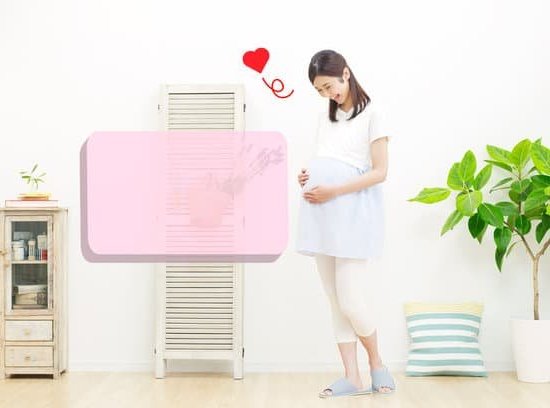Early pregnancy is a crucial period in a woman’s life, and it is essential to prioritize proper nutrition during this time. The question of whether lack of nutrition impacts early pregnancy is an important consideration for expectant mothers.
This article aims to delve into the role of nutrition in the early stages of pregnancy, the effects of inadequate nutrition on both the mother and fetal development, as well as provide tips for maintaining a nutritious diet during this critical time.
During early pregnancy, the mother’s body undergoes significant changes to support the growth and development of the fetus. Nutrition plays a pivotal role in providing essential nutrients that aid in these processes. Lack of proper nutrition can have detrimental effects on both the mother’s health and that of her developing baby. Understanding the repercussions of inadequate nourishment is vital in ensuring a healthy pregnancy and childbirth.
In the following sections, we will explore how lack of nutrition impacts a mother’s health during early pregnancy, as well as its implications for fetal development and overall health. Additionally, we will discuss signs and symptoms of nutritional deficiency, offer tips for maintaining a balanced diet, emphasize the importance of prenatal vitamins and supplements, and discuss seeking medical assistance for nutritional support during this critical period.
Understanding the Role of Nutrition in the Early Stages of Pregnancy
Nutrition plays a pivotal role in the early stages of pregnancy, as it contributes to the overall health and wellbeing of both the mother and the developing fetus. The food that an expectant mother consumes not only affects her own health but also directly impacts the growth and development of the baby. Adequate nutrition is crucial for supporting the increased demands of a growing fetus and sustaining the mother’s energy levels during this critical time.
During early pregnancy, proper nutrition supports the rapid cell division and tissue formation that occurs in the developing embryo. Essential nutrients such as folic acid, iron, calcium, and protein are vital for organ formation, bone growth, and overall fetal development. Without these essential nutrients, there is an increased risk of birth defects, low birth weight, preterm birth, and developmental delays.
Furthermore, adequate nutrition is essential for supporting the mother’s changing body and physiological needs during early pregnancy. Proper dietary intake can help alleviate common discomforts such as nausea, fatigue, constipation, and mood swings.
It also helps in maintaining a healthy weight gain throughout pregnancy and reduces the risk of complications such as gestational diabetes and preeclampsia. Therefore, ensuring a well-balanced diet rich in nutrients is crucial for promoting optimal health outcomes for both the mother and her unborn child.
Effects of Lack of Nutrition on the Mother’s Health During Early Pregnancy
During the early stages of pregnancy, maintaining a nutritious diet is crucial for the overall health and well-being of both the mother and the developing fetus. The lack of proper nutrition during this time can have significant effects on the mother’s health. Here are some key points to consider regarding the impact of nutritional deficiency on the mother’s health during early pregnancy:
- Increased Risk of Anemia: A lack of essential nutrients such as iron and folate can lead to an increased risk of developing anemia during pregnancy. This can result in fatigue, weakness, and difficulty in carrying out daily activities.
- Weakened Immune System: Nutritional deficiency can weaken the mother’s immune system, making her more susceptible to infections and illnesses during early pregnancy. This can pose risks to both her own health and that of the developing fetus.
- Hormonal Imbalance: Inadequate nutrition can lead to hormonal imbalances, which may affect mood stability and mental well-being. This can contribute to increased stress and anxiety levels during a time when emotional support is vital for a healthy pregnancy.
It is important for expectant mothers to be vigilant about their nutritional intake during early pregnancy. Proper nutrition not only supports healthy fetal development but also plays a critical role in safeguarding the mother’s health and well-being throughout this crucial period. Seeking guidance from healthcare professionals can help ensure that pregnant women receive adequate nutritional support tailored to their individual needs.
With these potential effects in mind, it becomes clear that maintaining proper nutrition during early pregnancy is essential for ensuring maternal health as well as setting the stage for a healthy pregnancy and childbirth.
Impact of Lack of Nutrition on Fetal Development and Health
During early pregnancy, proper nutrition is essential for the healthy development of the fetus. The lack of adequate nutrition can have a significant impact on fetal development and health. Below are some ways that poor nutrition during early pregnancy can affect the unborn baby:
- Low Birth Weight: Poor maternal nutrition can lead to low birth weight in babies, which increases the risk of health complications both at birth and later in life.
- Brain Development: Adequate nutrition is crucial for the development of the baby’s brain. A lack of key nutrients like folic acid, iron, and omega-3 fatty acids can impair neurological development.
- Organ Development: Nutritional deficiencies can also interfere with the proper formation and functioning of vital organs such as the heart, lungs, and kidneys in the developing fetus.
It is important to note that lack of nutrition during early pregnancy not only affects the physical health of the baby but also increases the risk of long-term health issues. Inadequate prenatal nutrition has been linked to a higher likelihood of chronic conditions like diabetes, heart disease, and obesity in later life for the child.
To prevent these negative effects on fetal development and health, it is crucial for expectant mothers to prioritize a balanced and nutritious diet throughout their pregnancy. Seek guidance from healthcare professionals to ensure that you are meeting your nutritional needs for both yourself and your growing baby. Remember that proper nutrition plays a crucial role in shaping the future health and well-being of your child.
Signs and Symptoms of Nutritional Deficiency in Early Pregnancy
During early pregnancy, it is crucial for women to pay close attention to their nutritional intake as it directly impacts both the mother and the developing fetus. Nutritional deficiency during this time can lead to a variety of signs and symptoms that should not be ignored. One common symptom of lack of nutrition in early pregnancy is fatigue. This can be attributed to the body not receiving enough essential nutrients to support the rapid changes and development occurring.
Another sign that may indicate a nutritional deficiency during early pregnancy is frequent dizziness or lightheadedness. This can occur due to low iron levels, which are essential for healthy blood circulation and oxygen delivery to both the mother and fetus.
Furthermore, hair loss or brittle nails could also be a potential indicator of lack of certain vitamins or minerals in the diet, such as biotin or iron. These signs should prompt expectant mothers to seek guidance from their healthcare provider to address any possible nutritional deficiencies.
In addition, women who experience persistent nausea and vomiting during early pregnancy may struggle with maintaining proper nutrition, leading to potential deficiencies. It is important for expectant mothers to work closely with their healthcare team to find solutions that will ensure adequate nutrient intake despite these challenges. By recognizing and addressing these symptoms early on, women can take proactive steps towards ensuring a healthy and nourishing environment for both themselves and their developing baby.
| Signs and Symptoms | Possible Nutritional Deficiency |
|---|---|
| Fatigue | Lack of essential nutrients such as iron or B vitamins |
| Dizziness/Lightheadedness | Low iron levels impacting blood circulation |
| Hair Loss/Brittle Nails | Possible deficiency in biotin, iron, or other essential nutrients |
Tips for Maintaining a Nutritious Diet During Early Pregnancy
Understanding the Nutritional Needs
During early pregnancy, a woman’s body undergoes numerous changes to support the growth and development of the fetus. Therefore, it is crucial for expectant mothers to understand their nutritional needs during this critical time. The developing embryo requires essential nutrients such as folic acid, iron, calcium, vitamin D, and protein for proper growth. It is important to consult with a healthcare provider to determine the specific dietary requirements based on individual health status and previous medical history.
Incorporating Nutrient-Rich Foods
A well-balanced diet that includes a variety of nutrient-rich foods is vital for maintaining good health during early pregnancy. This means consuming plenty of fruits, vegetables, whole grains, lean proteins, and dairy products.
Folic acid plays a key role in preventing birth defects, so incorporating foods like leafy greens, citrus fruits, and fortified cereals can help ensure an adequate intake of this essential nutrient. Iron-rich foods such as lean meats, beans, and fortified cereals are also important for preventing anemia during pregnancy.
Avoiding Harmful Substances
In addition to consuming nutritious foods, expectant mothers should be mindful of avoiding harmful substances that can impact the health of both the mother and developing fetus. This includes limiting the intake of caffeine and avoiding alcohol and tobacco products altogether. It’s also important to practice safe food handling to prevent foodborne illnesses that can be particularly harmful during pregnancy.
By following these tips for maintaining a nutritious diet during early pregnancy, women can help support their own health as well as the healthy development of their growing baby. Proper nutrition during this crucial time sets the stage for a healthy pregnancy and lays the foundation for optimal fetal development.
Importance of Prenatal Vitamins and Supplements
Prenatal Vitamins and Their Benefits
During pregnancy, the body’s demand for certain nutrients increases to support the developing baby. Prenatal vitamins are specifically formulated to provide essential vitamins and minerals that may be lacking in a woman’s diet. These supplements can help fill the nutritional gaps and ensure that both the mother and the baby receive adequate nutrients for optimal health.
Key Nutrients in Prenatal Vitamins
Folic acid, iron, calcium, and vitamin D are some of the key nutrients found in prenatal vitamins. Folic acid is crucial for preventing neural tube defects in the baby, while iron helps prevent anemia in the mother. Calcium is essential for strong bones and teeth, and vitamin D supports immune function. These nutrients play a vital role in fetal development and can also support the overall health of the mother during pregnancy.
When to Start Taking Prenatal Vitamins
It is recommended for women to start taking prenatal vitamins as soon as they decide they want to conceive. Since neural tube defects develop in the first few weeks of pregnancy, it is important for women to have sufficient folic acid in their system even before they become pregnant. Consultation with a healthcare provider is crucial to determine the best prenatal vitamin regimen based on individual needs.
Seeking Medical Assistance for Nutritional Support During Early Pregnancy
During early pregnancy, it is crucial for women to maintain a well-balanced and nutritious diet in order to support the health and development of both the mother and the growing fetus. However, there are instances where some women may struggle to obtain adequate nutrition due to various reasons such as food aversions, morning sickness, or dietary restrictions. In such cases, seeking medical assistance for nutritional support becomes essential in ensuring a healthy pregnancy.
Medical professionals play a critical role in providing guidance and support to expectant mothers who are experiencing challenges in maintaining proper nutrition during early pregnancy. Obstetricians and nutritionists can offer personalized recommendations and dietary plans tailored to the specific needs and circumstances of each individual. Additionally, they can also prescribe prenatal vitamins and supplements to address any existing nutritional deficiencies that may impact the health of both the mother and the developing baby.
It is important for pregnant women to be proactive in seeking medical assistance if they are unable to meet their nutritional needs during early pregnancy. By consulting with healthcare providers, expectant mothers can receive the necessary support and resources to address any nutritional concerns and ensure that they are taking appropriate measures to promote a healthy pregnancy.
| Impact of Lack of Nutrition on Fetal Development | Signs and Symptoms of Nutritional Deficiency |
|---|---|
| Poor growth and development | Extreme fatigue |
| Premature birth | Dizziness or lightheadedness |
| Low birth weight | Constipation or digestive issues |
Conclusion
In conclusion, the impact of lack of nutrition on early pregnancy cannot be underestimated. The importance of receiving proper nutrients during this crucial time cannot be overstated, as it directly affects both the mother’s health and the development and health of the fetus.
A deficiency in essential vitamins and nutrients can lead to serious complications for both the mother and baby, making it imperative for expectant mothers to prioritize their diet and seek medical assistance for nutritional support if needed.
It is evident that lack of proper nutrition can have detrimental effects on both the mother and the fetus during early pregnancy. Not only does it increase the risk of health complications for the mother, but it also poses a threat to the growth and development of the unborn child. Therefore, pregnant women should pay close attention to their diet, ensuring that they are consuming a variety of nutrient-rich foods to support a healthy pregnancy.
In summary, maintaining a nutritious diet during early pregnancy is vital for promoting overall maternal and fetal health. From understanding the role of nutrition in early pregnancy to recognizing signs of nutritional deficiency and seeking medical assistance when necessary, prioritizing proper nutrition is key to ensuring a healthy start for both mother and baby. It is important for expectant mothers to be proactive in managing their dietary intake and seeking professional guidance when needed to support a healthy pregnancy journey.
Frequently Asked Questions
What Happens if You Don’t Eat Enough in Early Pregnancy?
Not eating enough in early pregnancy can lead to nutritional deficiencies, which can negatively impact both the mother and the developing baby. Inadequate intake of essential nutrients like folic acid, iron, and calcium can increase the risk of birth defects, premature birth, low birth weight, and other complications.
It’s important for pregnant women to ensure they are getting enough calories and nutrients to support a healthy pregnancy.
What Happens if You Don’t Eat Healthy First Trimester?
Failing to eat healthily during the first trimester can result in inadequate intake of essential nutrients needed for the development of the baby. Poor nutrition during this critical period can increase the risk of birth defects, slow growth, and other complications.
It’s important for women to focus on consuming a balanced diet that includes a variety of fruits, vegetables, lean proteins, whole grains, and healthy fats.
Does Nutrition Matter in First Trimester?
Nutrition plays a crucial role in the first trimester as it sets the stage for fetal development and growth. During this time, vital organs are forming and proper nutrition is essential for supporting these processes.
Nutrient-rich foods provide the building blocks needed for healthy fetal development. It’s important for pregnant women to prioritize their nutrition during the first trimester to set up a strong foundation for a healthy pregnancy.

Welcome to my fertility blog. This is a space where I will be sharing my experiences as I navigate through the world of fertility treatments, as well as provide information and resources about fertility and pregnancy.





